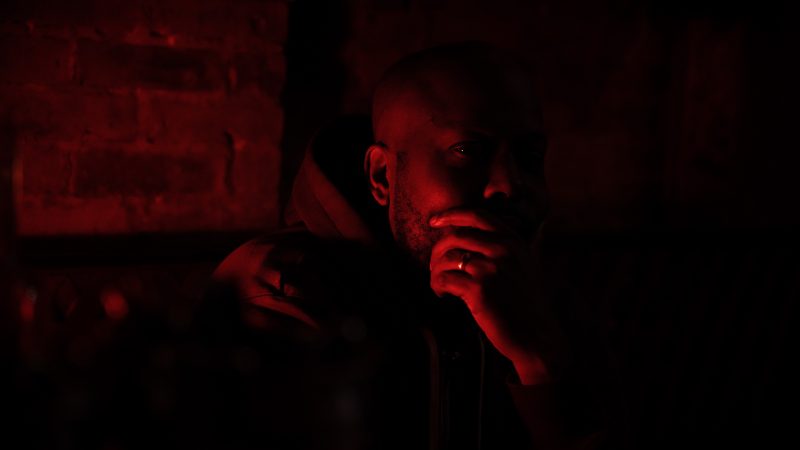
Some artists enter the game with a gimmick. Errol Eats Everything entered with a purpose.
Equal parts CEO, emcee, and storyteller, Errol isn’t playing a character—he’s lived every syllable. You can hear it in the way he layers verses like architecture, each word carrying the weight of movement, loss, hustle, and rebirth. Raised in a Jamaican household where music blasted like scripture and life came with a strict code, Errol found early on that the only way to stay sane was to create.
“I’d sneak into my dad’s record collection, spin the vinyls, and just lose myself,” he says. “Music was my oxygen before I even knew what that meant.”
But don’t confuse therapy with a fairytale. Errol’s story isn’t the cliché come-up of overnight success. It’s full of detours—failed jobs, culture clashes, corporate microaggressions, and rooms where he was both the only one who looked like him and the one most overlooked.
“I chased every traditional path society said would bring success. Got the degrees. Took the meetings. And at every turn, I had to fight to be seen,” he says. “But I got this one superpower—persistence.”
That persistence birthed Errol Eats Everything, a project that’s more than music—it’s memoir in motion. From the storytelling on “NRG” to the layered vibes of upcoming single “Ballad of the Brutes,” the project reads like a passport of lessons and cities. Errol doesn’t just rap; he documents.
“I’ve lived in so many places. Texas, Vegas, different boroughs. Each spot teaches you how to move. The shady characters, the couch-crashing, the way silence works is different in every zip code—all of that’s in the music.”
Despite the growing attention, Errol stays grounded by the people who’ve been in his corner since day one—especially his partner, Babylove.
“She’s the smartest person I know, period. And she’ll call me out if I’m slippin’,” he says with a grin. “She’s been down since I was rapping to myself.”
Sound That Defies Time
While most artists chase trends, Errol builds time machines. His sound is rooted in East Coast boom bap but folds in futuristic textures, groove-driven rhythms, and unapologetic storytelling. He credits producer Furious Evans for helping him expand his sonic palette.
“Furious is on another level. He pulls sounds from outer space but grounds them in the real,” Errol says. “What we’re doing doesn’t sound like what’s out there. It’s not supposed to.”
When asked what inspires his lyrics, the answer is immediate: emotion.
“People forget words, but they never forget how something made them feel. That’s the mark I’m trying to leave.”
But don’t get it twisted—Errol’s not boxed into music. He’s building an ecosystem. Animated series, short films, podcasts, art galleries, fashion drops. All part of the EEE universe.
“This brand is bigger than music. It’s a lifestyle, a lens. I’m just getting started.”
Legacy in Layers
When asked if he’s more focused on legacy or the present moment, Errol leans in.
“All you have is now. The future is an illusion. But if you honor them properly, the legacy takes care of itself.”
He pauses.
“I just want to raise my boys right. Raise ‘em to be strong, resilient. If I do that, I’m good.”
What Comes Next
With “Ballad of the Brutes” on deck and another project—Blame Furious Evans—already in motion, Errol’s next wave promises deeper grooves and sharper edges.
“It’s still me,” he says. “But evolved. The bars are surgical. The production’s crazier. We’re stepping into something bigger.”
So what would Errol tell his past self?
“You’ve already made it. Now have fun.”
And what would he tell us?
“Pay attention. We’re building something timeless.”
